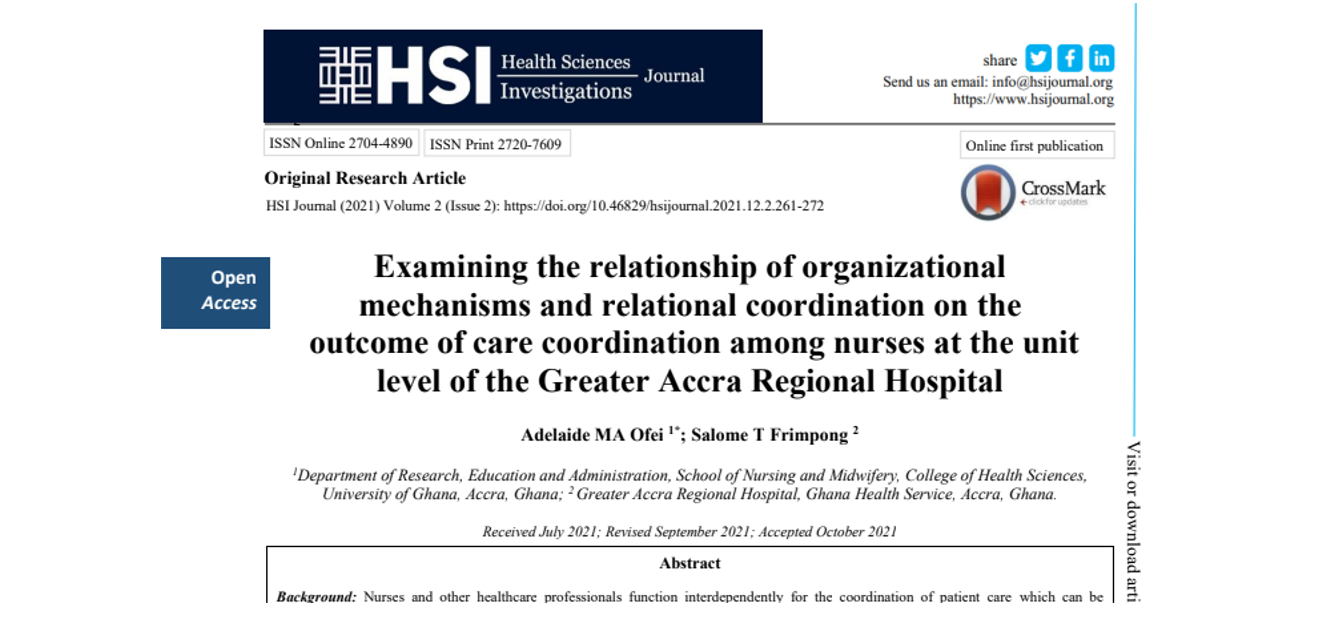Examining the relationship of organizational mechanisms and relational coordination on the outcome of care coordination among nurses at the unit level of the Greater Accra Regional Hospital.
Abstract
Background: Nurses work with the healthcare team to coordinate and facilitate care for patients. Nurses and other healthcare professionals function interdependently for the coordination of patient care which can be unpredictable and varies from setting to setting. Organizational mechanisms strengthen networks both within and between organisations to enable quality and efficient care. Care coordination when accomplished through relationships of shared goals, shared knowledge, and mutual respect motivate staff. Strong relationships enable staff to embrace connections with one another to effectively coordinate work processes.
Aim: The study examined the influence of organizational mechanisms and relational coordination on the outcome of care coordination among nurses in a regional hospital.
Methods: Exploratory descriptive design was used to conveniently engage 262 nurses from eight (8) units who have been working in the hospital for at least three months using structured questionnaire to collect data.
Results: The study revealed that, lack or absence of all the predictive factors such as organizational mechanisms and relational coordination influence the outcome of care coordination practice among nurses. Rate of care coordination is generally good (82.9%).
Conclusion and Recommendation: This study has shown that several factors influence the practice of care coordination among nurses. Management should strengthen organizational mechanisms such as communication, information technology and interpersonal relationship. Additionally, in-service training should be strengthened to facilitate care coordination practice among nurses and better patients’ outcome.


